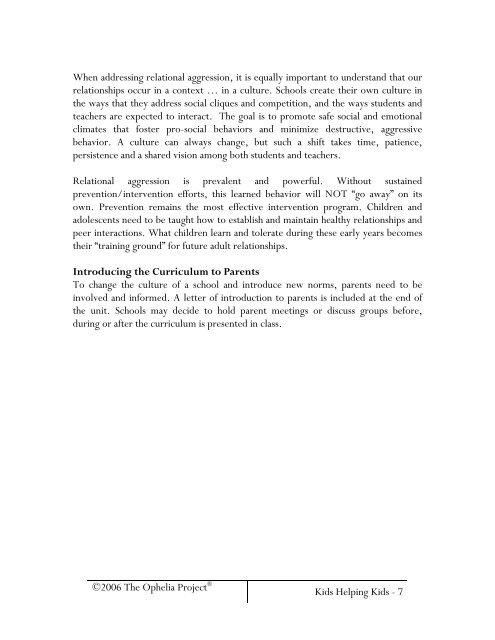Kids Helping Kids
KidsHelpingKids
KidsHelpingKids
- No tags were found...
You also want an ePaper? Increase the reach of your titles
YUMPU automatically turns print PDFs into web optimized ePapers that Google loves.
When addressing relational aggression, it is equally important to understand that our<br />
relationships occur in a context … in a culture. Schools create their own culture in<br />
the ways that they address social cliques and competition, and the ways students and<br />
teachers are expected to interact. The goal is to promote safe social and emotional<br />
climates that foster pro-social behaviors and minimize destructive, aggressive<br />
behavior. A culture can always change, but such a shift takes time, patience,<br />
persistence and a shared vision among both students and teachers.<br />
Relational aggression is prevalent and powerful. Without sustained<br />
prevention/intervention efforts, this learned behavior will NOT “go away” on its<br />
own. Prevention remains the most effective intervention program. Children and<br />
adolescents need to be taught how to establish and maintain healthy relationships and<br />
peer interactions. What children learn and tolerate during these early years becomes<br />
their “training ground” for future adult relationships.<br />
Introducing the Curriculum to Parents<br />
To change the culture of a school and introduce new norms, parents need to be<br />
involved and informed. A letter of introduction to parents is included at the end of<br />
the unit. Schools may decide to hold parent meetings or discuss groups before,<br />
during or after the curriculum is presented in class.<br />
©2006 The Ophelia Project ®<br />
<strong>Kids</strong> <strong>Helping</strong> <strong>Kids</strong> - 7


